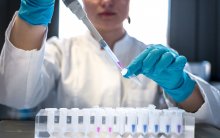The University draws inspiration from the principles and values recognized in the Constitution of the Italian Republic, in the Charter of Fundamental Rights of the European Union and other international acts and agreements regarding human rights (...) . The University is committed to achieving research integrity, in terms of adherence to and full implementation of the ethical and deontological principles, values and professional standards on which the responsible and diligent behavior of those who design, conduct, fund and assess scientific research is founded, as well as (...) those of the European policy for Responsible Research and Innovation (RRI), and of the European Charter for Researchers (...)
(from our Code of Ethics, Code of Conduct and Principles of Research Integrity)
The University aims to be the place where each member of the academic community finds the best conditions to perform their institutional duties. The individual is placed at the core, both in terms of professional development and in the definition of their educational needs and programs.
- Academic freedom
- Protection of individual dignity and well-being
- Environmental protection
- Integrity of decision-making processes
- Protection and promotion of opportunities. Rejection of any form of discrimination and favoritism
- Rejection of any form of abuse and harassment
- Prevention of conflict of interest
- Scientific and ethical integrity of research
- Employment protection
- Confidentiality and personal data protection
- Protection of intellectual property
- Knowledge dissemination and social responsibility education
- Freedom of expression and representation
The University has appointed a Research Ethics Committee with the following tasks:
- expressing an opinion on the research projects and activities carried out by its researchers or in which the University is involved, whenever necessary;
- taking initiatives to promote the knowledge, application and observance of the principles, regulations and standards of good research practice;
- providing an opinion on the correct interpretation and application of the principles of good research practice.
ANIMAL WELFARE AND RESEARCH
Our University is committed to evaluating, from an ethical and scientific perspective, the conditions and methods of animal testing for research within the University's facilities, and to promoting initiatives aimed at training researchers involved in this experimentation. To this end, it has established the Animal Welfare Body (OPBA). Its aims include:
- promoting respect and protection of animals;
- safeguarding animals used for experimental or other scientific purposes within the institutional activities of the University;
- respecting, safeguarding, and preserving the environment;
- science promotion and freedom;
- verifying the training of personnel involved in animal experimentation.
In compliance with the law (Legislative Decree 4th March 2014, no. 26), the OPBA reviews research projects involving the use of animals (go to the Intranet page “Come presentare una richiesta di parere”). Obtaining its favorable opinion is essential for submitting projects to the Ministero della Salute, the competent authority, that specifically authorizes the project after evaluating the technical-scientific opinion of the Istituto Superiore di Sanità.
The University's Animal Facilities host animals for which ministerial authorization for experimentation has been obtained.
OPBA composition:
- Professor Elena Bossi - (from 30th June 2023 to 29th June 2026)
- Professor Greta Forlani (from 30th June 2023 to 29th June 2026)
- Professor Tiziana Rubino (from 30th June 2023 to 29th June 2026)
- Doctor Maria Luisa Guidali – Animal Welfare Responsible
- Doctor Micaela Antonini – Fish Facility Responsible
- Doctor Francesco Carù – Designated Veterinarian - veterinario@uninsubria.it
Personnel involved in animal testing must be trained, following indications contained in the Decreto Ministeriale 05 agosto 2021 and Decreto Direttoriale 18 marzo 2022 (go to Intranet page “Formazione del personale che svolge sperimentazione animale”).
Law no. 413 of 12/10/93 - Rules on conscientious objection to animal testing
It is possible to declare one's conscientious objection to any act related to animal testing. This declaration does not have discriminatory effects on students and/or workers. All public and private facilities are required to inform all students and/or workers of their right to exercise conscientious objection.
A University Commission for the implementation of the Code of Ethics is established, whose members, equipped with the necessary prerequisites of integrity, are appointed by the Academic Senate on proposal from the Rector.
The Commission for the implementation of the Code of Ethics is expected to:
- perform a supervision function on the implementation of and adherence to the Code’s regulations, in compliance with the following provisions;
- after receiving notification of potentially relevant behaviors from a disciplinary point of view, promptly forward the notification itself to the competent disciplinary bodies;
- submit revision or integration proposals for the Code to the competent bodies;
- have advisory functions on the interpretation of the Code’s regulations, summoning, when appropriate, the interested parties before taking any other action;
- write an annual report on the activities it carried out which will be published on the University’s website.





